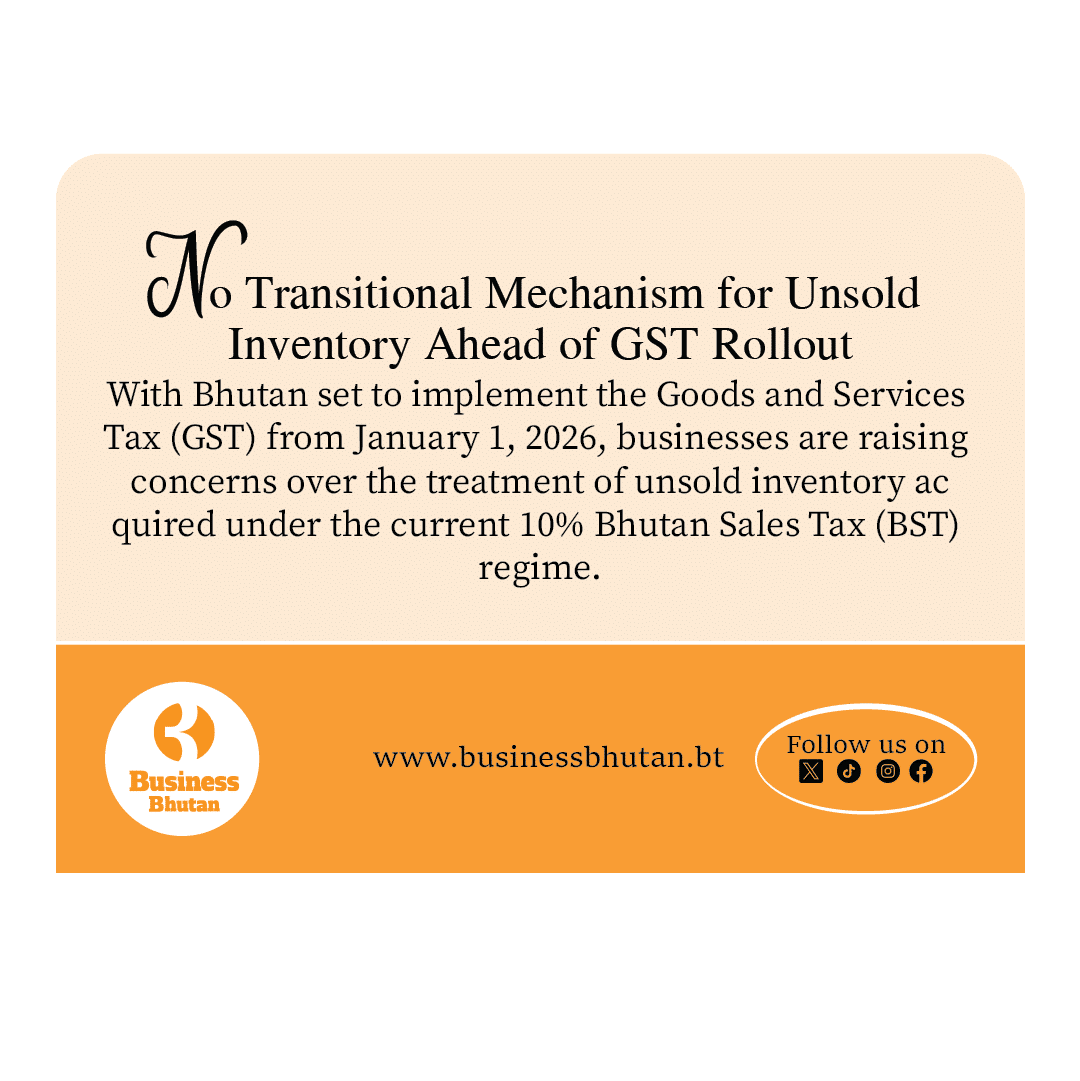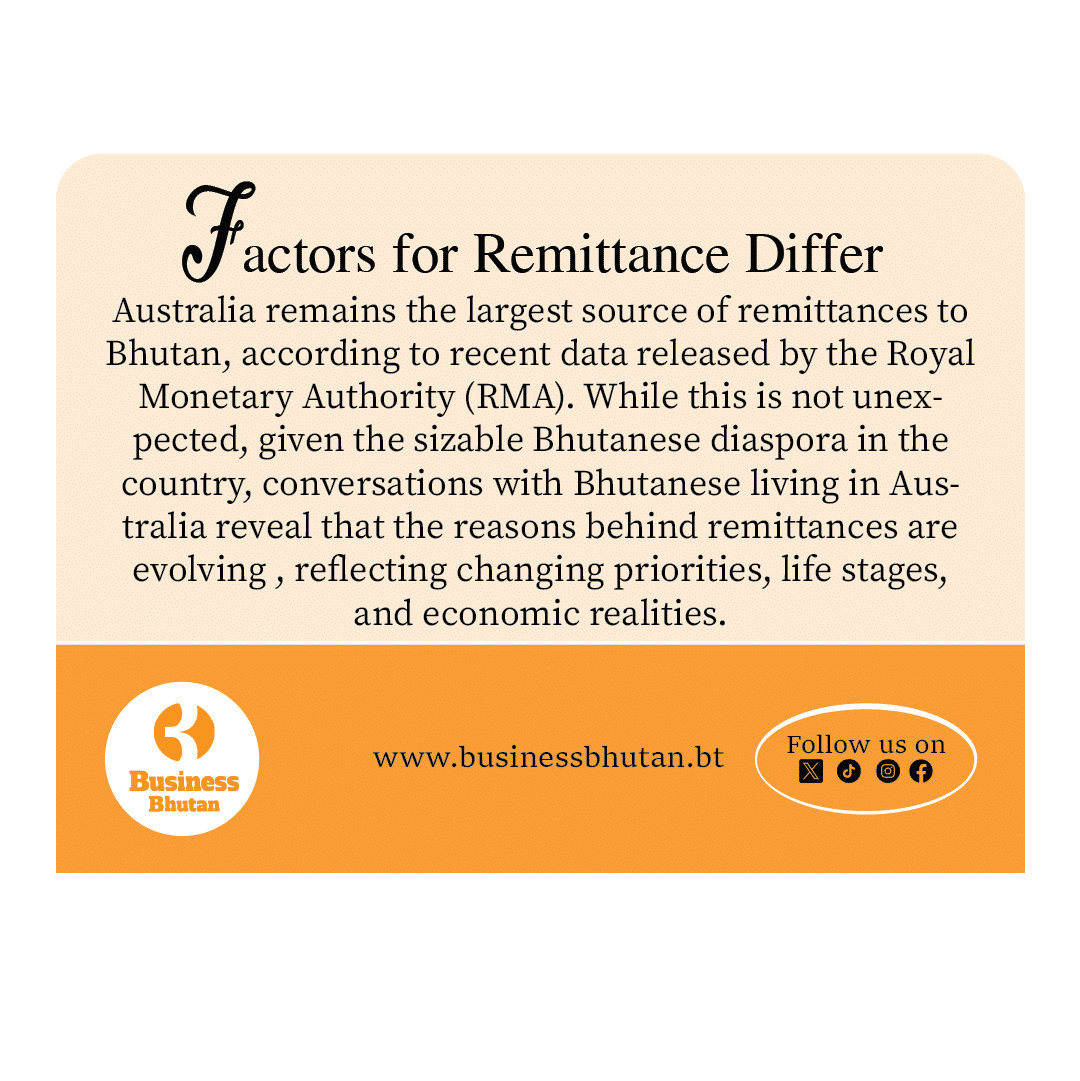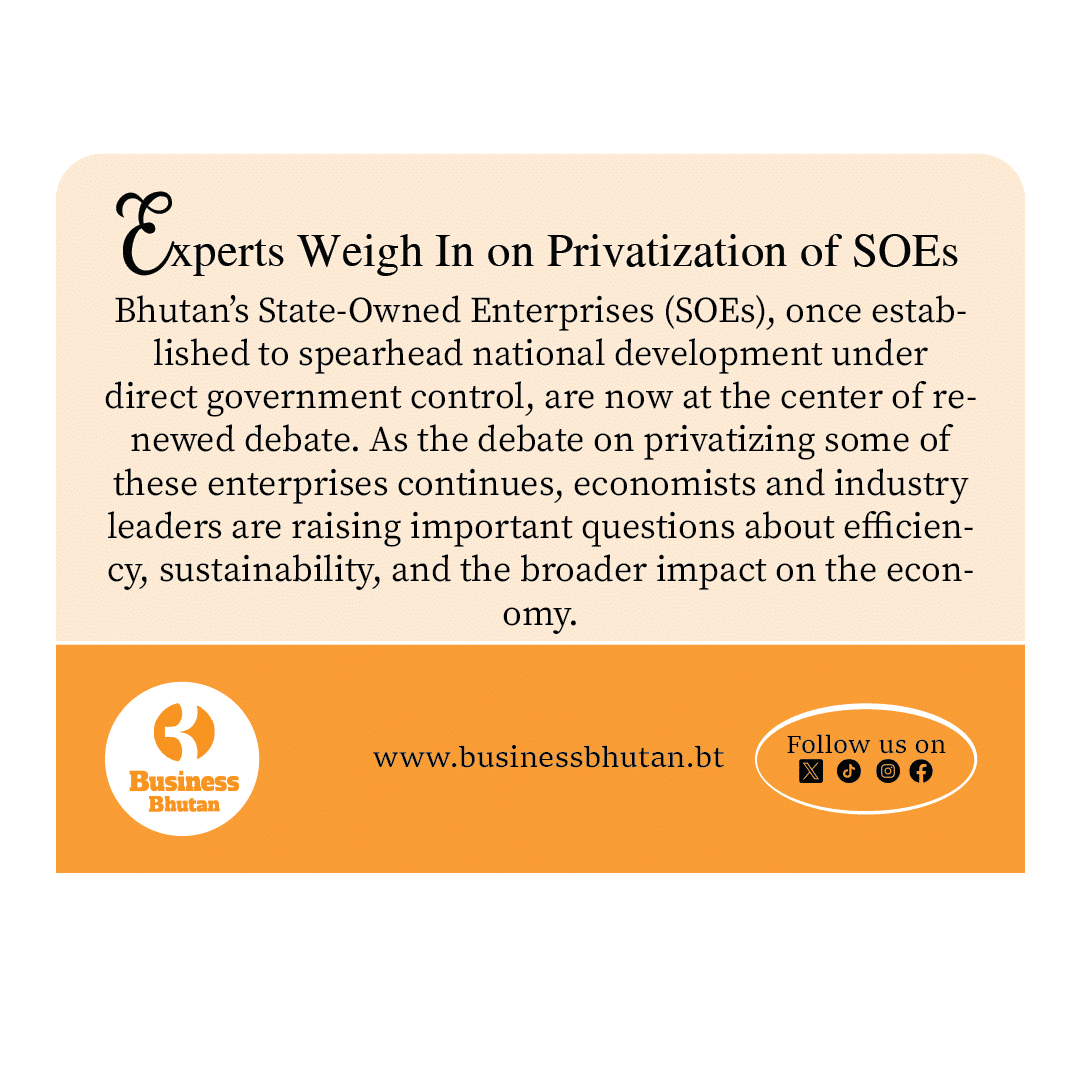With Bhutan set to implement the Goods and Services Tax (GST) from January 1, 2026, businesses are raising concerns over the treatment of unsold inventory acquired under the current 10% Bhutan Sales Tax (BST) regime.
During a press briefing on October 24, the Department of Revenue and Customs (DRC) clarified that no transactional mechanism exists for unsold stock purchased prior to the GST rollout.
The Bhutan Hardware Association (BHA), representing a sector that depends heavily on bulk inventory, had earlier appealed to the DRC seeking transitional relief. The association argued that without a mechanism, businesses risk “effective double taxation” on goods purchased under BST but sold after GST implementation.
Typically, hardware retailers import stock in bulk, paying 10% BST at entry. Under the upcoming GST, the tax rate on similar goods will decrease to 5% — a reduction that benefits businesses in the long term. However, the absence of transitional provisions for existing inventory has raised concerns among traders.
Finance Secretary Leki Wangmo emphasized that businesses must manage inventory responsibly. “While there is no transactional mechanism for unsold stock,” she said, “enterprises can arrange warehouses, stockpile goods, and sell them after GST implementation, ensuring compliance with the new taxation system.” Car dealerships and other high-stock sectors are expected to follow similar arrangements.
The Finance Secretary also noted that while the BHA has submitted appeals, the association has not provided sufficient credible data to support policy adjustments. “For effective policy framing, we require data from the ground. Decisions cannot be made based on a few complaints,” she said.
The BHA’s first appeal, dated August 14, 2025, requested the government to establish mechanisms for input tax credits or stock adjustments for pre-GST inventory. The association also called for public clarification and industry-specific consultations to prepare members for the new tax regime.
However, a DRC notification issued on August 19, 2025, stated that “no transitional credit shall be available for goods purchased prior to January 2026” and emphasized that taxes paid under the previous BST system would not be eligible for input credits under GST.
Despite appreciating the clarification, the BHA submitted a second appeal on August 26, citing international precedents. India’s 2017 GST rollout allowed transitional credits for excise duty and VAT on existing stock. Singapore’s 1994 implementation and Malaysia’s 2015 transition scheme also provided mechanisms to avoid cascading taxes during system changes.
“The governments in these countries recognized that businesses should not face double taxation on the same inventory during a transition,” the BHA argued.
Despite repeated follow-ups, the association reports that it has yet to receive a response from the authorities regarding reconsideration.
As Bhutan approaches the GST rollout, businesses and industry associations continue to seek clarity, guidance, and support, emphasizing that transitional mechanisms could help prevent financial strain while ensuring smooth compliance under the new tax regime.
during crises. This is more than infrastructure—it’s a commitment, a commitment to protect people, support farmers, and secure Bhutan’s future.
Sangay Rabten
From Thimphu
















